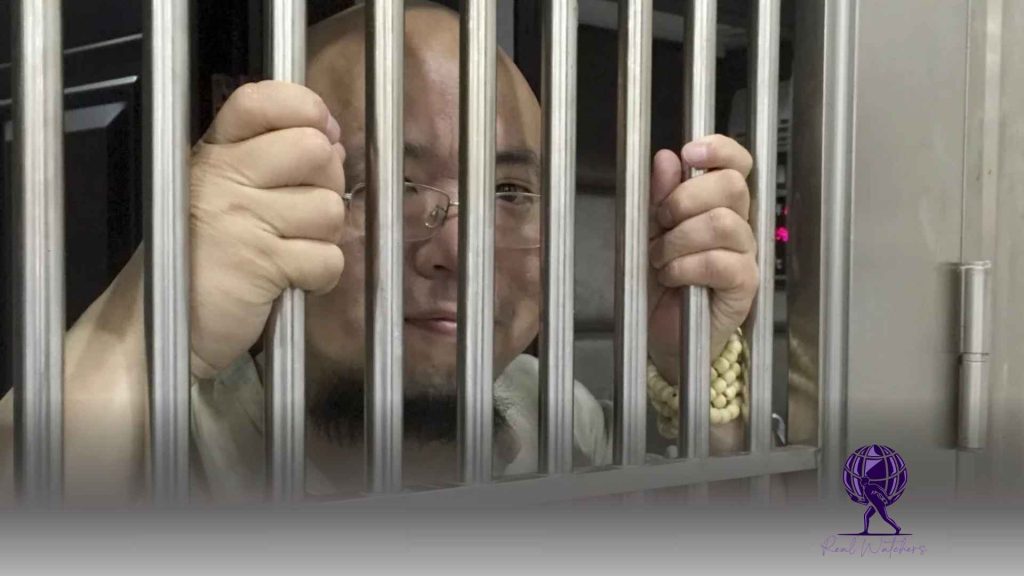A former Canadian diplomat, whose detention in China sparked a significant diplomatic controversy, has alleged that Chinese officials subjected him to “psychological torture.”
Michael Kovrig has reported that he endured months of solitary confinement and faced “relentless interrogation” following his arrest in December 2018, during which he was detained for over 1,000 days.
The Chinese government dismissed his allegations, asserting that it had managed his case in accordance with the law.
Mr Kovrig and his compatriot Michael Spavor faced detention on espionage allegations, a situation that arose after the apprehension of Chinese businesswoman Meng Wanzhou in Vancouver. Canada has characterized this incident as an instance of “hostage diplomacy.”
At that time, the Canadian government detained Ms. Meng, the chief financial officer of the Chinese tech giant Huawei, in connection with fraud charges brought by the United States.
Nearly two years later, the “two Michaels” were finally freed when US prosecutors decided to drop the extradition request and reached an agreement to release Ms. Meng.
“It was the most gruelling, painful thing I’ve ever been through,” Mr. Kovrig stated during an interview with Canadian public broadcaster CBC, which was broadcast on Monday night.
In a poignant recounting of his experience, Mr Kovrig revealed that on the night of his arrest, he was making his way home from dinner in Beijing alongside his partner, who was six months pregnant at the time.
“We ascended a spiral staircase directly in front of the plaza adjacent to my apartment building, and then it happened,” he recounted.
“A group of a dozen men dressed in black, equipped with cameras, encircled us, loudly exclaiming in Chinese, ‘That’s him.'”
Mr Kovrig, a former diplomat and senior advisor for the International Crisis Group think tank, recounted being handcuffed, blindfolded, and forcibly placed into a black SUV.
Following nearly an hour of transportation, he was placed in a padded cell, a confinement that would last for several months.
“At that moment, they stated, ‘You are under suspicion of jeopardizing the security of the state of China.'” “You are going to be interrogated,” Mr. Kovrig stated. “A shiver ran down my spine.”
Mr Kovrig has claimed that his treatment by the Chinese authorities constitutes a violation of international law.
The United Nations has established a guideline that solitary confinement should not exceed 15 days. Exceeding that threshold is regarded as psychological torture. “I spent almost six months there,” he stated.
He reported being held in total isolation under harsh fluorescent lights for a duration of six months, during which he endured six to nine hours of interrogation each day.
He frequently reported being confined to a chair for extended periods, at times enduring a meagre diet of just three bowls of rice each day.
“They are attempting to intimidate, harass, and manipulate you into accepting their distorted version of reality,” Mr. Kovrig stated.
Following six months of detention in separate facilities, Mr Kovrig and Mr Spavor were officially arrested.
Mr Kovrig has been transferred from his windowless cell to a pre-trial detention facility, where he now shares a room with a dozen other inmates.
“It felt akin to transitioning from a state of torment to one of uncertainty,” he remarked, noting the presence of daylight streaming through Plexiglass windows and the newfound space to move about.
Mr. Kovrig remained in detention for two years, ultimately being released in September 2021, coinciding with the United States’ decision to withdraw its extradition request for Meng Wanzhou.
According to CBC, just two hours after the extradition request for Ms. Meng was dropped, he and Mr. Spavor successfully exited Chinese airspace aboard a flight to Canada.
In response to Mr. Kovrig’s interview, Lin Jian, a spokesperson for China’s Ministry of Foreign Affairs, stated that Chinese judicial authorities managed the case in strict accordance with the law.
“Attempts to distort the truth do not alter the reality that the individual in question has committed a crime.” “We urge the involved parties to acknowledge the facts and consider their errors,” he stated to reporters in Beijing on Tuesday.
Mr Kovrig’s claims regarding his treatment by the Chinese authorities sharply contrast with Ms Meng’s experience in Canada.
The heiress has been granted bail and is currently under house arrest. However, she is permitted to leave her residence during the day, allowing her to traverse a significant area of Vancouver while being monitored.
Sources indicate that she engaged in exclusive shopping excursions at luxury boutiques while also indulging in massages and art lessons within the confines of her mansion. Ms. Meng subsequently expressed that she had the opportunity to finally “read a book cover to cover” and “carefully complete an oil painting.”
Her release garnered significant attention and was widely celebrated in China, where numerous supporters rallied behind her and her father, Ren Zhengfei, the founder of Huawei.
The situation has put significant pressure on China’s diplomatic relations with both Canada and the United States. Canadian Prime Minister Justin Trudeau has notably accused China of employing “arbitrary detention as a tool to achieve political goals.”
China has refuted these allegations, asserting that the arrest of Ms. Meng represents a case of “political persecution of Chinese citizens aimed at stifling China’s high-tech enterprises.”








